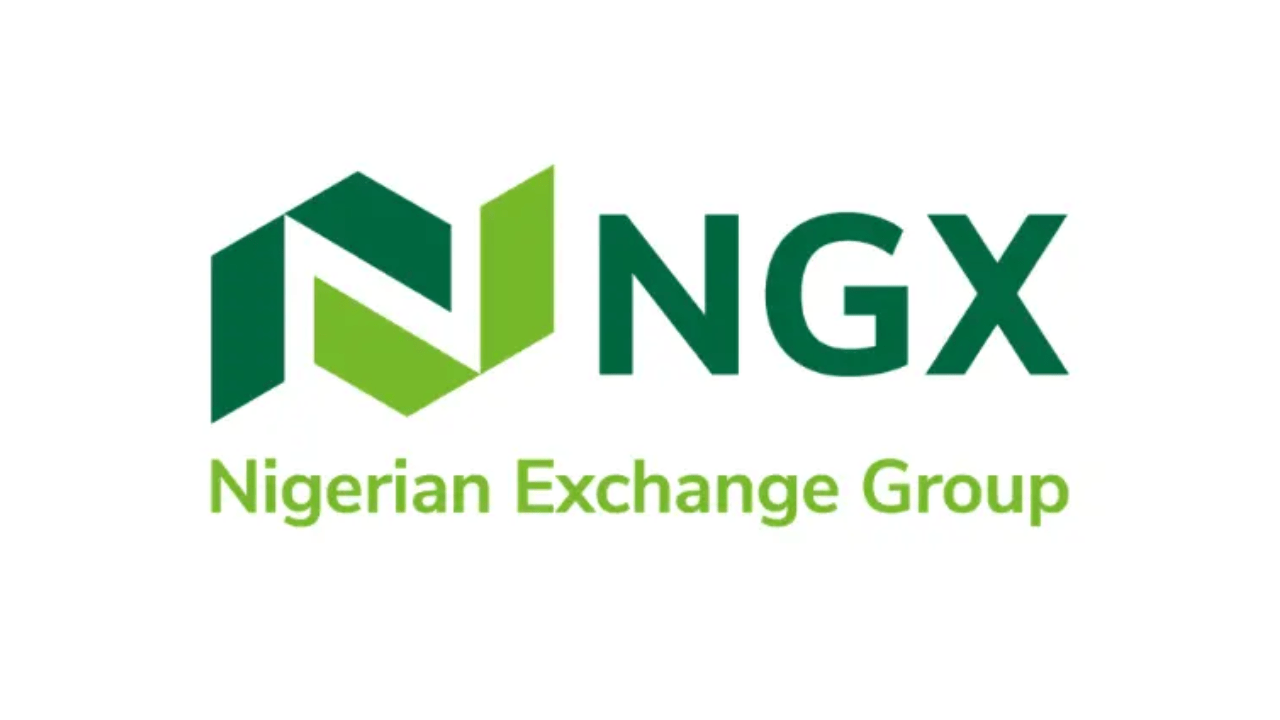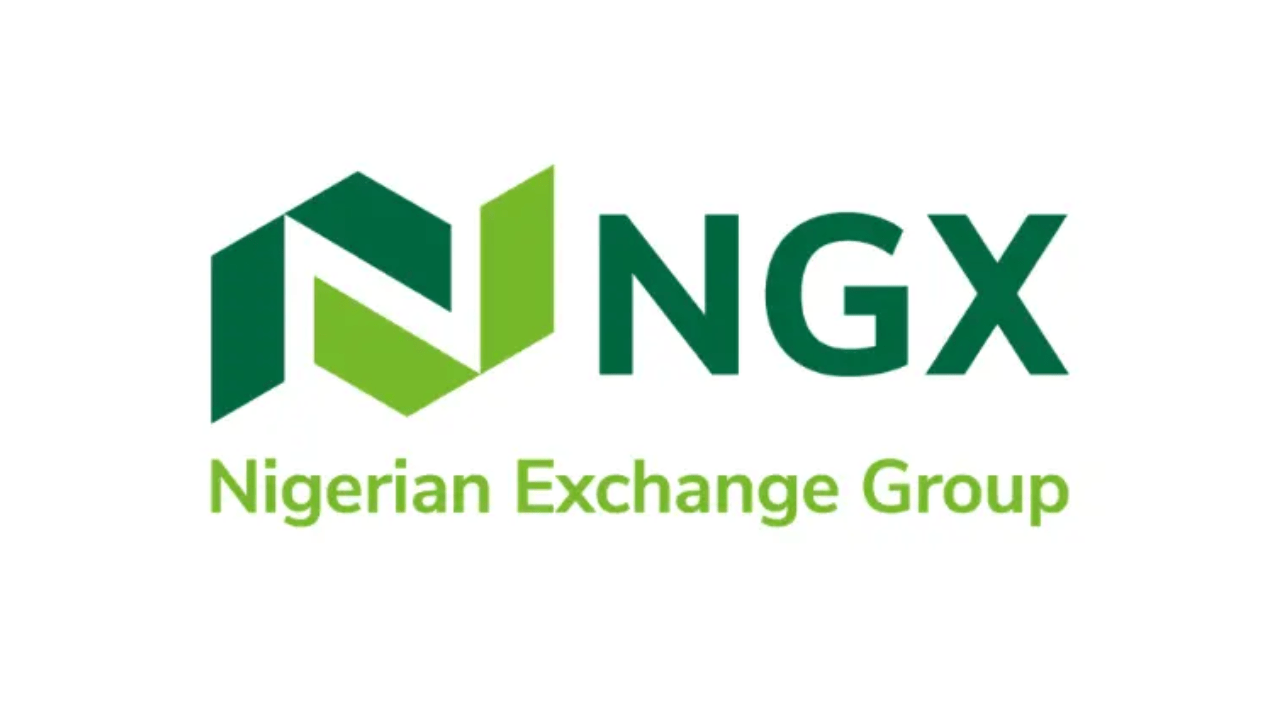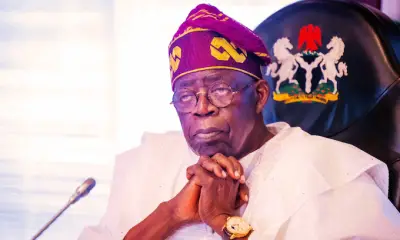Business
Stakeholders Discuss New Approach for Sustainable Development in Africa at Africa Social Impact Summit 2023
Recently, key players from the government, the diplomatic community, civil society, and the public and private sectors gathered in Lagos for the two-day Africa Social Impact Summit (ASIS), co-convened by Sterling One Foundation and the United Nations, Nigeria.
The gathering, which was held under the theme – Global Vision, Local Action: Repositioning the African Development Ecosystem for Sustainable Outcomes, was the second edition of the Africa Social Impact Summit designed to help build partnerships and galvanise investments that will ensure that Africa makes rapid progress towards achieving the Sustainable Development Goals.
With the world halfway through the 15-year timeline set for the Sustainable Development Goals, there has been a call across the globe to review the work done to see what has worked and what has not, and to identify critical areas where additional measures are needed for success to be achieved.
This call formed the basis of conversations at ASIS 2023, as former President of Malawi, Joyce Banda, Consul Generals of the British High Commission, United States of America, German, and Danish Consulates, Permanent Secretaries of the Nigeria Ministries of Women Affairs, Education, Water Resources, Environment, Budget, and National Planning, non-profit leaders, business executives, and experts from different vital sectors, including education, health, climate action, agriculture, and more, shared insights into their different sustainability strategies, results so far, and plans for the coming years.
Mrs Olapeju Ibekwe, CEO of the Sterling One Foundation, expressed hope for several partnerships and innovations to emerge from the summit in her opening remarks, noting that she was looking forward to existing social impact initiatives in various rural communities accessing multilevel resources to be able to do more and spread their impact from community to community across the continent. She added that she was humbled by the intentionality of the private sector to own the sustainable development goals and grateful for the partnership of the United Nations as the co-convener of the summit.
“Across the continent, the people are waiting for action. For far too long, Africa has been tagged – the Emerging Continent, with the continent’s potential a recurring theme of conversation, yet poverty, hunger, climate crisis, and inequality, remain visible; thus, Africa is yearning for action. I remain confident and incurably optimistic that there is the capacity for the type of action we seek in this room. There is the capacity to build strong partnerships for sustainable solutions to move from plans to action quickly. I urge everyone to interact and collaborate because the stakes are very high,” she noted.
In his welcome remarks, Mr Abubakar Suleiman, Managing Director and CEO of Sterling Bank Limited and Board Member of the Sterling One Foundation, explained that the true essence of the Summit was to ensure that at every level, the issues and challenges resulting in widespread poverty across Africa get tackled rightly and that everyone is moving in the right direction.
“Six months from now, when we reach out to you, we want to hear that because you came here, you met someone, and you established a relationship, you rethought your approach, therefore, are getting more value from your resources, and are better at solving problems together. The only thing that matters is the relationships you form today and how these relationships transmit to a much better outcome than you had before you came here,” he said.
Before yielding the stage to the diplomatic community, UN Resident and Humanitarian Coordinator (a.i), Nigeria, Mr Matthias Schmale, described the Summit’s timing as an opportune happenstance during a time of enormous challenges and great opportunities for Africa. He went on to say that the 2030 Agenda is a clear framework for addressing these challenges facing Africa, which requires all of us to break free from business-as-usual approaches and move together faster.
“Governments, NGOs, and civil society cannot tackle our current challenges alone. If we are to secure a just, sustainable world, we need a whole-of-society approach in which the private sector plays a pivotal role,” he said.
While further stating that the promise of the 2030 Agenda is now in peril, he urged more CEOs and investors to adopt the ten principles of the UN Global Compact, hire more qualified women, and ensure that their investments focus on more than just profit to reflect social impact considerations.
He pledged support to the Nigerian Government, citing the Cooperation Framework for Sustainable Development, which both parties have agreed to, and also called on more organizations to embrace Public-Private Partnerships to leverage the strengths and capabilities of both sectors to fast-track and scale up major development initiatives.

L-R: CEO, Sterling Bank, Abubakar Suleiman, US Consul General in Nigeria, Will Stevens, and CEO, Sterling One Foundation, Olapeju Ibekwe at the Africa Social Impact Summit which held recently in Lagos
The host government, represented by the Lagos State Deputy Governor, Dr Kadri Obafemi Hamzat, welcomed this pledge and idea as he asked the private sector to take the lead in unleashing enterprise-driven innovation to create the impact ecosystem required for recovery within the state and across Africa.
The Permanent Secretary of the Nigerian Ministry of Education, Mr David Adejo, further echoed this sentiment as he stressed that the government cannot solely run the education sector and endorses private sector and academia partnerships to significantly restructure the curriculum and determine the kind of graduates we want. He mentioned that this was already underway with the International Finance Corporation (IFC), which has birthed entrepreneurship departments in all universities in Nigeria. Yet, there’s still a lot more to be done to help younger children.
In her goodwill remarks, Joyce Banda, former President of Malawi, urged the private sector in the global north to forge strong partnerships with the private sector in the global south to directly impact people within African communities.
Remarks from the US Consul General, Mr Will Stevens, the German Consul General, Mr Weert Börner, the Danish Consul General and Head of Trade, Mrs Jette Bjerrum, and a representative of the British High Commission, all highlighted the potential that Africa holds, especially with its human resources and the different ways each of these countries is supporting to harness these resources.
The US Consul General, in his remarks, said it was time to begin to talk about African solutions to global problems, not just African solutions to African problems.
With partnerships from top private organizations such as The Coca-Cola Company, Microsoft, MTN Foundation, Sterling Bank, Oando Foundation, SBG Insurance Brokers, the African Venture Philanthropy Alliance, TRACE and developmental partners like the United Nations Development Programme (UNDP), British Council, United Nations Global Compact Network Nigeria, USAID-sponsored Nigeria SCALE Project, Nigeria INGO Forum, Association for the Development of Education in Africa (ADEA) and UNIDO-ITPO Nigeria, the Summit was able to convene over 1,500 physical attendees, and more than 60 leading experts in various industries, who engaged in discussions about the critical sectors of the African economy.
With keynote addresses, delivered by Amina J. Mohammed, Deputy Secretary-General, United Nations, who described Africa as the “most exciting business opportunity in the world, with 60% of the world’s arable land and a massive population of motivated youths,” Prof. Oyebanji Oyelaran-Oyeyinka, Senior Special Adviser to President on Industrialisation, African Development Bank Group, who stressed the need for an economic transformation from agriculture-based to industry and services and Adrian Clamp, Global Head of Connected Enterprise at KPMG, the Summit helped to identify evidence-based strategies for improving impact investment inflow into Africa.
Other panel discussions focused on more promising ways to fund quality education access, health programs in underserved communities, strategies for financing scalable climate change solutions, increasing the operational efficiency of civil society organizations, accelerating action on water and critical action points for genuine equitable development, harnessing our youth population and their talents, and improving how we report the progress made on the continent.
Beyond the panels and keynote addresses, the Summit featured a deal room with pitches from 18 businesses shortlisted from over 500 applications from across Africa.
The finalists from South Africa, Kenya, and Nigeria with health, waste recycling, agriculture, and education businesses had a combined investment bid of about $49,600,000 for expansion and production capacity increase. Successful candidates will access the requested funds to scale their businesses.
The post Stakeholders Discuss New Approach for Sustainable Development in Africa at Africa Social Impact Summit 2023 appeared first on Jomog.
Business
0.78% Increase in NGX ASI


Wednesday’s equities trading at the Nigerian Exchange Limited closed on a bullish note with the All-Share Index rising by 0.78% to reach 71,808.64 points.
The market capitalization also experienced a gain of N472 billion, closing at N39.295 billion.
Trading volume saw a significant surge of 59.15%, reaching 690.011 million units compared to the previous day’s 433.568 million units. The trading value also increased to N12.1 billion from the previous day’s N11.1 billion.
The top gainers were THOMASWY, closing at N3.32 with a 9.92% increase, First Bank Nigeria Holding (FBNH) rising by 9.91% to close at N29.40, MULTIVERSE with a 9.90% increase to close at N0.70, ETI rising by 9.88% to close at N18.90, and INFINITY seeing a 9.70% increase to close at N1.47.
On the other hand, MANSARD saw a 9.69% decrease to close at N4.10, GUINEAINS fell by 9.68% to close at N0.28, OANDO experienced a 9.13% decrease to close at N10.45, OMATEK dropped by 8.14% to close at N0.79, and UNIVINSURE saw a 7.41% decrease to close at N0.25.
Regarding volume, GTCO led with 76.70 million units, followed by UBA with 74.57 million units, FIDELITYBK with 65.63 million units, ACCESSCORP with 64.18 million units, and UNIVINSURE closing at 47.13 million units with a decrease of 7.41%.
In terms of value, GTCO also led with N 3.04 billion, followed by UBA with N1.66 billion, ZENITHBANK with N1.37 billion, ACCESSCORP with N1.34 billion, and MTNN with N938.9 million.
The NGX ASI recorded a 0.78% gain in Wednesday’s equities trading.
The post 0.78% Increase in NGX ASI appeared first on NewsNow Nigeria.
Business
Universal Green Energy Access Programme, Union Bank of Nigeria Announce Partnership to Propel the Renewable Energy Market in Nigeria
Luxembourg based Universal Green Energy Access Programme (UGEAP), and Union Bank of Nigeria have formalised the basis for a strategic partnership to catalyse the development of the renewable energy market in Nigeria.
This collaboration, marked initially by a Memorandum of Understanding (MoU), aims to drive sustainable energy access for households and small and medium businesses across Sub-Saharan Africa, primarily focusing on Nigeria.
UGEAP, a 15-year blended finance facility, is dedicated to supporting the transition to sustainable energy. The United Nations Green Climate Fund (GCF) has committed the anchor investment to UGEAP, with DWS Investment S.A. as the Investment Manager.
Union Bank of Nigeria is a venerable financial institution established in 1917. The bank brings its vast experience and a comprehensive portfolio of banking services to this partnership. With over 293 service centres and more than 937 ATMs spread across Nigeria, it is a trusted partner in the financial sector.
Recognising the critical need for energy in Nigeria and the shared ambition to increase the proportion of renewable energy in the energy mix, the Parties have identified key areas of focus, which include meeting the energy demands in Nigeria, reducing industry and corporate dependence on expensive electrical energy to align with climate targets for CO2 emissions reduction, promoting solar home solutions, mini-grids for first-time electrified communities, and both off-grid and on-grid renewable energy production for corporates and productive use of energy.
In line with this, Union Bank and UGEAP commit to cooperating on a joint initiative with the specific goal of mobilising and deploying USD 500 million in funding and technical assistance over the next five (5) years. This initiative aims to advance the renewable energy sector, benefit businesses and communities in Nigeria, and contribute to the broader sustainability goals in Sub-Saharan Africa.
Speaking about the partnership, Mudassir Amray, Managing Director and Chief Executive Officer of Union Bank, said:
“Union Bank of Nigeria is proud to align with UGEAP in this groundbreaking initiative. Our longstanding commitment to fostering growth in Nigeria and UGEAP’s expertise in renewable energy positions us to drive meaningful change. This collaboration marks a milestone in pursuing renewable energy development in Nigeria, promising a more sustainable and resilient future for our communities.”
Also commenting on the partnership, Michael Hoelter, Senior Investment Principal of the Sustainable Investments team at DWS, expressed:
Renewable energy technology is a highly flexible solution for local solutions to the global target to de-carbonise industry and the financial system. Be it pay-as-you-go or roof-top installations for corporates, customers do not have to wait for the national grid to be reinforced to obtain electrical energy reliably. Solar power beats the noise of generators and can also beat the cost. UGEAP aims to multiply its capital contribution with the strength of local partners with a strategic alignment to bring clean energy to households and industrial users. We are glad to welcome Union Bank to the already existing partners in this joint development path.
The post Universal Green Energy Access Programme, Union Bank of Nigeria Announce Partnership to Propel the Renewable Energy Market in Nigeria appeared first on Jomog.
Business
Sterling Bank Again Wins Overall Best Workplace In Nigeria
Sterling Bank Limited, Nigeria’s leading financial institution, has again emerged as the 2022 Overall Best Workplace in Nigeria in the large corporate category awards organised by the Great Place to Work (GPTW).
Since 2020, the Bank has continued to win the overall best workplace award of the GPTW.
According to the organisers of the award, the bank emerged first Best Place to Work in the large corporate category, Best in Promoting People Leadership Practices in the large category and the Best in Promoting Corporate Social Responsibility Initiatives in the large category.
In a keynote address, Chairman of Sterling Bank, Mr. Asue Ighodalo said, “Now, more than ever in the life of our country, we must create an environment that enables an inclusive and consistent growth rate of over seven percent year-on-year to emerge from our present economic and social predicament.”
Describing himself as an apostle of and a firm believer in private sector-led growth, Mr. Ighodalo noted that creative, disciplined, innovative, and efficient organisations, manned by visionary, selfless, hardworking, satisfied and passionate people will catalyse the growth of the national economy.
“Rising at dawn and working till dusk each day, are the men and women who drive these organisations,” he said, adding that “for the organisations to thrive and sustain themselves, these men and women must be happy at work, passionate about their work, well trained, healthy, mentally balanced, fairly treated, motivated, appreciated, comparatively well rewarded and respected.”
He said employers have a duty to ensure that employees work in an environment and with people who enable outstanding performance. According to him, the world changed significantly in the last five years and the change has greatly affected employees’ attitude to work, their ways of working, the reasons they work, their organisational loyalty and where they work from.
He remarked that in order to retain the quality of talent they need to survive, grow, thrive and sustain themselves, organisations must adapt to the constant changes, volatility and unpredictability in the world because “we are at the edge of a new world economic order with indications that China will soon overtake the United States as the world’s biggest economy and the dollar’s importance in international trade, settlements and store of value will diminish.”
He said the global economy continues to face unprecedented challenges, noting that the greatest impact on how people work and their commitment to work has been the 2019 Covid pandemic with its lingering effects. He added that the war in Ukraine continues to further destabilise the global order, negatively affecting the cost of food and energy, disrupting supply chains and logistics certainty, and pushing many people into unemployment all over the world.
“Our enabling environment must improve and our organizations, which are the growth drivers, must become attractive work havens. So, with all of these challenging changes, volatility and unpredictability how do we create and sustain attractive and productive work havens?”
“Regardless the positive and efficiency enhancing impact of technology, science, robotics and digitalisation, I remain absolutely clear that each organisation is only as good as the people that work in there, driving and controlling its systems and technologies.
“People are the heartbeat of any organisation, driving it forward with their individual and collective efforts. They are not just assets; they are the essence of the company, making it vibrant and alive.
“Strategies, milestones, and overall financial performance may grab the headlines, but these only come together by the channelled efforts of the dedicated hands and minds of the people who call the company home—individuals who are comfortable enough to live their best livesand do their best work within their respective organisations,” Ighodalo said.
He enjoined organisations to commit to the wellness and stability of their employees, by offering a wide range of wellness programmes and initiatives, including mandatory annual physical check-ups, holistic maternity and paternity initiatives, employee assistance programmes to provide access to mental health support, and extensions to employees’ health plans that provide cover for older dependents.
He said companies should also take steps to promote work-life balance, and may, subject to the nature of the tasks, offer unconventional flexible work arrangements and paid health breaks among others.
The post Sterling Bank Again Wins Overall Best Workplace In Nigeria appeared first on Jomog.
-

 News2 years ago
News2 years agoFull Text of President Bola Tinubu’s Inauguration Speech on May 29, 2023
-
Headlines2 years ago
Full Text Of President Bola Tinubu’s Address To Nigerians On Socio-economic Challenges
-
Headlines2 years ago
FULL TEXT: Tinubu Addresses 78th UN General Assembly
-

 CELEBRITY NEWS2 years ago
CELEBRITY NEWS2 years ago“E no balance”-Netizens react as Bobrisky shows off new shape days after surgery
-

 Education5 months ago
Education5 months agoSYSTEMSPECS CHILDREN’S DAY ESSAY COMPETITION (CDEC), 2024
-

 entertainment8 months ago
entertainment8 months agoAuthorities Arrest Six in Connection with Murder of South African Rapper AKA [VIDEO]
-

 Headlines8 months ago
Headlines8 months agoTinubu Takes Full Responsibility for Current Economic Hardship
-

 Education4 months ago
Education4 months ago1ST NIGERIAN TERTIARY INSTITUTIONS CONFERENCE ON UN SUSTAINABLE DEVELOPMENT GOALS (SDGS) ESSAY COMPETITION
